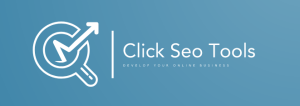You may have come across a 404 error message while browsing the internet, but have you ever wondered what it actually means and how it can impact your website’s search engine optimization (SEO)? Essentially, a 404 error occurs when a user tries to access a page that no longer exists on a website. This article will shed light on the significance of 404 errors in the context of SEO, and how you can manage and minimize their negative effects on your website’s rankings and user experience.
What is a 404 Error?
A 404 error is an HTTP status code that indicates that the webpage you are trying to access does not exist. When you click on a link or enter a URL, the web server responds with a 404 error if the requested page cannot be found. This error message is usually displayed as “404 Not Found” and can occur for various reasons.
Review contents
Definition of a 404 Error
A 404 error occurs when a user attempts to access a webpage that the server cannot find. It could be due to a mistyped URL, a deleted page, or a broken link. The server sends a 404 status code to inform the user that the requested resource is not available.
Causes of a 404 Error
There are several reasons why a 404 error may occur. Typing or entering incorrect URLs, deleted or moved pages without proper redirection, and broken links within a website can all lead to a 404 error. It could also happen if the website has been completely removed or if the server is experiencing technical issues.
Impact of a 404 Error on User Experience
Encountering a 404 error can be frustrating for users. It disrupts their browsing experience and prevents them from accessing the content they were looking for. This can lead to a negative impression of the website and may discourage users from returning in the future. The way a website handles 404 errors can greatly impact user experience and overall satisfaction.
Importance of Addressing 404 Errors
Addressing 404 errors is crucial for maintaining a healthy and user-friendly website. Ignoring these errors can have negative consequences on various aspects, including search engine crawlability, website authority, and potential traffic and conversions.
Effect on Search Engine Crawlability
When search engines encounter 404 errors on a website, it hinders their ability to crawl and index the site effectively. If important pages are returning 404 errors, they may not appear in search engine results pages (SERPs), leading to a decreased online visibility.
Negative Impact on Website Authority
A website with excessive 404 errors can suffer from a decline in authority. When search engines consistently encounter broken links or missing pages, it signals a lack of maintenance and can negatively affect the overall trustworthiness and credibility of the website.
Loss of Potential Traffic and Conversions
404 errors can result in the loss of potential traffic and conversions. If users are unable to access the content they were seeking, they are likely to leave the website and look for alternatives. This can lead to missed opportunities for engagement, conversions, and revenue.
How 404 Errors Affect SEO
404 errors have a direct impact on search engine optimization (SEO). Understanding how they affect SEO can help website owners and marketers address these errors effectively.
404 Errors and Search Engine Indexing
When search engine crawlers encounter a 404 error, they are unable to index the page. This means that the page will not appear in search engine results, potentially preventing the website from being discovered by users. Regularly monitoring and addressing 404 errors is crucial to ensure optimal indexing of webpages.
Negative SEO Signals
Excessive 404 errors can send negative signals to search engines, indicating a poorly maintained website. This can result in a drop in rankings and visibility in search results. By keeping 404 errors under control, website owners can maintain a positive impression with search engines and improve their SEO efforts.
Link Equity and 404 Errors
When a webpage returns a 404 error, any inbound links directing to that page are essentially wasted. These links, also known as link equity, can positively contribute to a website’s SEO and authority. By properly handling 404 errors through redirects or alternative solutions, website owners can preserve the link equity and maintain their SEO efforts.
SEO Best Practices to Handle 404 Errors
Implementing best practices to handle 404 errors can significantly improve the overall SEO performance of a website. Here are some effective strategies to consider:
Custom 404 Page
Creating a custom 404 page allows website owners to provide a user-friendly experience when users encounter a 404 error. It should include a clear message explaining the error and provide helpful navigation options to guide users back to relevant content.
301 Redirects
Implementing 301 redirects is a crucial step in addressing 404 errors. This redirect sends users and search engines to a different, relevant page instead of the missing one. It helps preserve link equity, ensures a seamless user experience, and allows search engines to index the redirected page.
Regularly Monitor and Fix 404 Errors
Regularly monitoring and fixing 404 errors should be part of routine website maintenance. Utilize tools and reports to identify broken links or missing pages and take immediate action to resolve them. By promptly addressing 404 errors, website owners can improve user experience and maintain their SEO efforts.
Tools to Identify and Fix 404 Errors
Several tools are available to help identify and fix 404 errors efficiently. These tools provide valuable insights into broken links and missing pages, enabling website owners to take appropriate action.
Google Search Console
Google Search Console is a free tool provided by Google that offers webmasters insights into their website’s performance in search results. It includes a “Coverage” report that identifies pages returning 404 errors. With this information, website owners can rectify these errors and ensure better indexing and visibility.
Web Analytics Tools
Web analytics tools like Google Analytics can provide valuable data on the sources of 404 errors. By analyzing these reports, website owners can identify patterns and take necessary steps to fix broken links and improve user experience.
Crawling Tools
Crawling tools such as Screaming Frog and DeepCrawl can crawl websites and identify broken links, missing pages, and other issues. These tools provide comprehensive reports that help pinpoint 404 errors and facilitate their resolution.
Common Mistakes to Avoid
Although addressing 404 errors is important, it is equally essential to avoid common mistakes that can hinder the resolution process.
Redirecting All 404 Errors to the Homepage
Redirecting all 404 errors to the homepage can be misleading and frustrating for users. Instead of providing relevant information or assistance, users are taken to a different page that may not address their needs. It is essential to redirect 404 errors to relevant pages or display a custom 404 page with helpful navigation options.
Using Soft 404 Errors
Soft 404 errors occur when a webpage returns a 200 OK status code despite not existing. This can confuse search engines and users alike. It is recommended to properly handle 404 errors with the correct status code and provide the appropriate response to search engines and users.
Preventing 404 Errors
Preventing 404 errors is essential for maintaining a healthy website and optimal user experience. Follow these practices to minimize the occurrence of 404 errors:
Regularly Update and Maintain Website
Regularly updating and maintaining your website ensures that links and pages remain functional. Keep track of any changes to URLs or content and promptly redirect or update any links accordingly. By staying proactive with website maintenance, you can prevent the occurrence of 404 errors.
Proper URL Structure and Organization
Maintaining a proper URL structure and organization is critical to prevent 404 errors. Use descriptive and relevant URLs that accurately reflect the content on the page. Implementing a logical hierarchy and avoiding unnecessary URL changes can also minimize the chances of encountering 404 errors.
Additional Resources
For more information and guidance on handling 404 errors and improving SEO, here are some valuable resources:
Official Google Guidelines
Google provides official guidelines on various aspects of SEO, including handling 404 errors. Refer to their documentation and recommendations to ensure best practices are followed.
SEO Blogs and Forums
Stay updated with the latest SEO trends and learn from industry experts by following reputable SEO blogs and participating in SEO-focused forums. These platforms provide valuable insights and advice on addressing 404 errors and other SEO-related topics.
Video Tutorials
Video tutorials can be a helpful resource for visual learners. Platforms like YouTube offer a wide range of SEO-related tutorials that cover topics like handling 404 errors. Watching these tutorials can provide step-by-step guidance and practical tips.
Conclusion
Understanding what a 404 error is and how it affects SEO is crucial for website owners and marketers. By addressing 404 errors promptly and following best practices, website owners can improve user experience, maintain their website’s authority, and enhance their SEO efforts. Utilize the available tools and resources to effectively identify and fix 404 errors, and stay proactive in website maintenance to prevent them from occurring in the first place. By prioritizing the handling of 404 errors, website owners can ensure a seamless browsing experience for users and maintain a strong online presence.





























